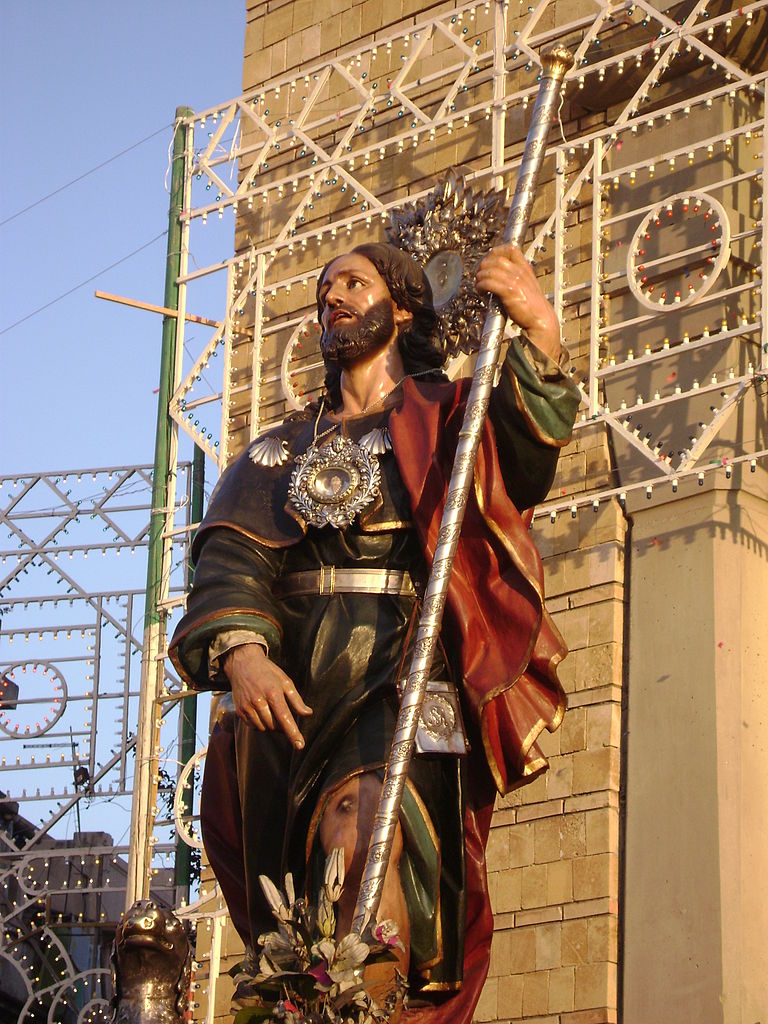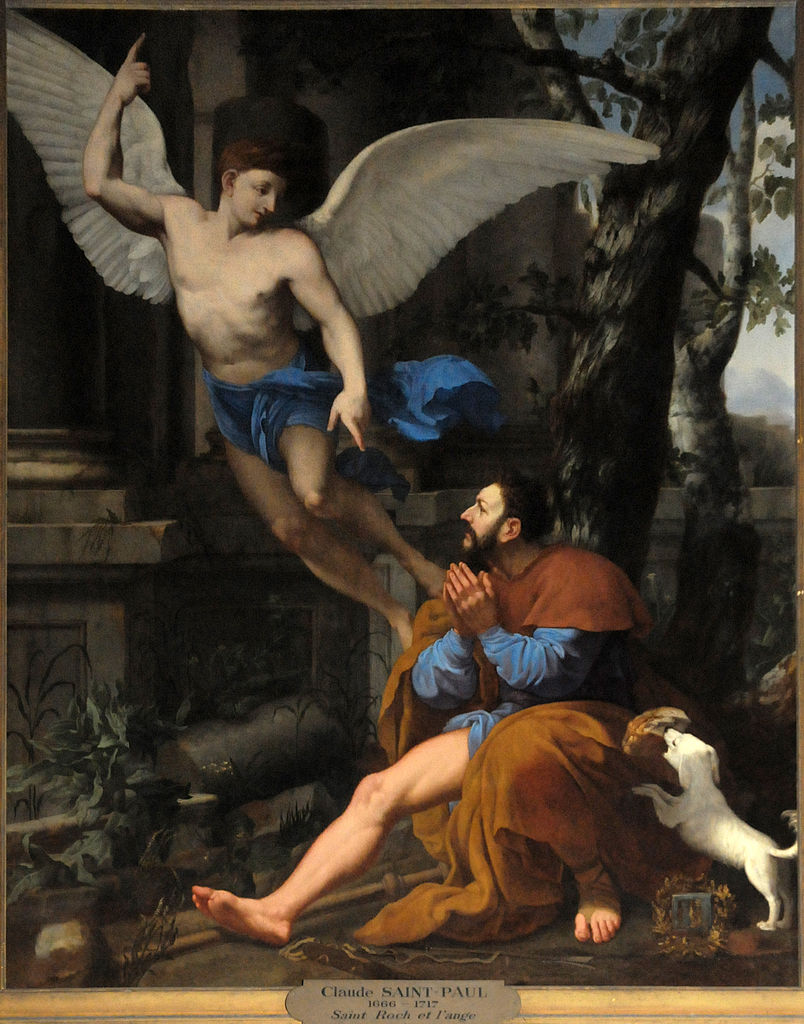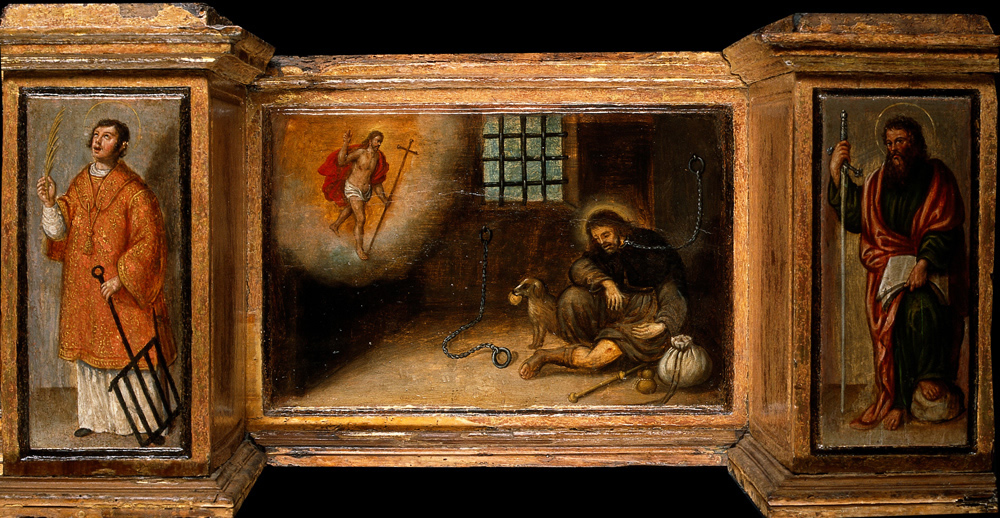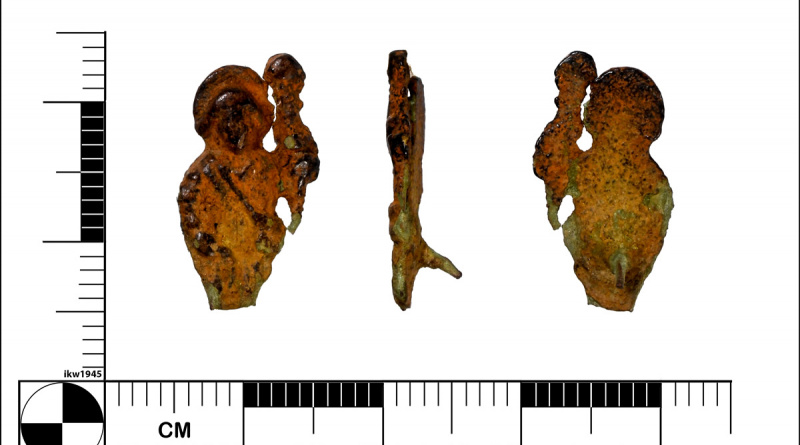Pilgrim badge of Saint Roch
A 15th century pilgrim badge of St Roch. It is a Find of Note of Regional Importance.

The key feature that identifies it as St Roch is that he is lifting his robe to reveal a wound. As in the processional statue of St Roch from Scilla in Italy, he is often shown with a travelling staff and a purse at his waist.
As well as other things, he is patron saint of dogs and falsely accused people and was invoked against the plague. These are a result of his remarkable story.
Plague
He was the only son of a wealthy but devout governor of Montpellier, marked from birth with a red cross on his chest. When he was twenty both his parents died and he decided to give all his possessions to the poor and handed the government of the city over to his uncle. We’ll meet his uncle again later.
He joined the Third Order Franciscans and set out on a pilgrimage. When he arrived in Italy, it was in the grip of the plague. He tended the sick without becoming ill himself and effected many miraculous cures.
Dog
He finally became ill with the plague and not wishing to be a burden to anybody, he removed himself to the forest.

Here he might have died had it not been for a dog that befriended, bringing him food and licking the wound on his leg.
The dog belonged to a nobleman named Gothard Palastrelli. One day, he followed the dog into the woods, found Roch and brought him to his house to recover.
Once well enough to travel he felt divine inspiration to return home to Montpellier.
Falsely accused
He found the city at war but refused to disclose his identity so that he could remain poor. This led him to being falsely accused of being a spy. Still wishing to conceal his true identity, he did not contest these charges and was thrown into prison.

Photo: Welcome Library CC BY 4.0
After five years in prison, he died and his name miraculously appeared in golden letters on the wall. The governor, his uncle, was called and he identified Roch by the red cross birthmark on his chest.
His feast day is August 16th.

